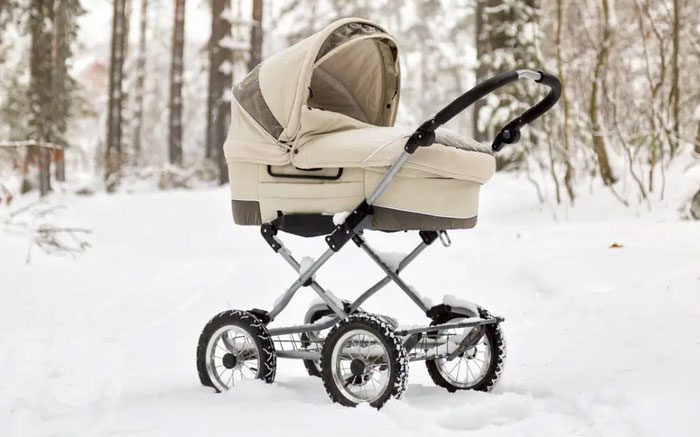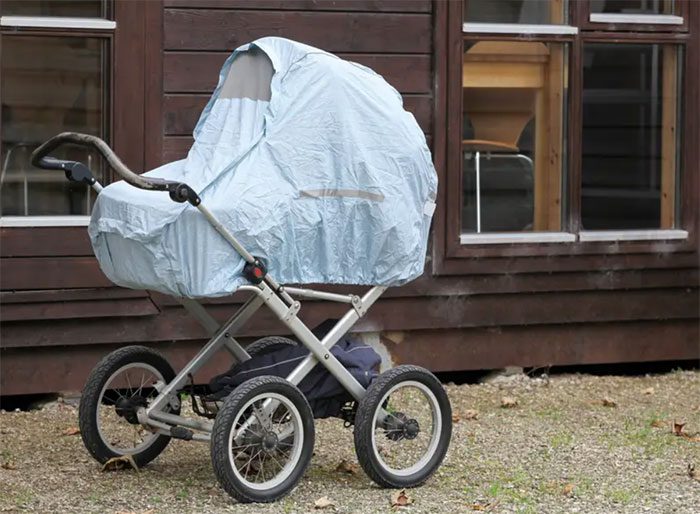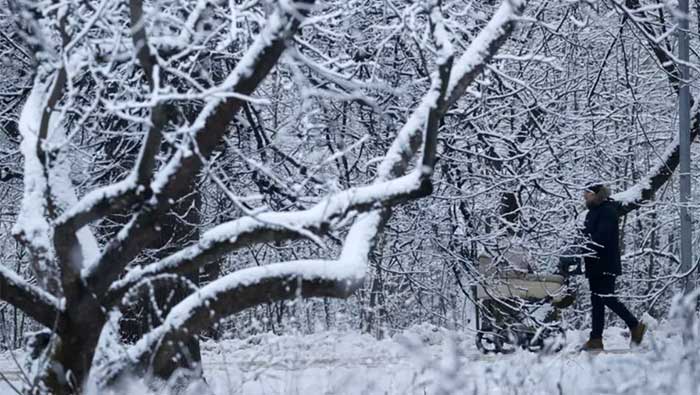Letting children sleep outdoors is a common practice among many parents in Denmark, Finland, and other Nordic countries. In these places, parents often allow their young children to sleep outside to help them sleep better in the fresh air.
In January 2020, a Danish artist named Amalie Bruun sparked online discussions when she posted a photo on Instagram. The photo showed her with her 4-month-old son, Otto, in the garden. At the time, Otto was still awake, and Bruun shared that her child often sleeps outside. Not only Bruun, but many other Nordic parents also reported that they frequently let their children nap outside during the cold winter months.
January is the coldest month of the year in Denmark, with average low temperatures reaching 2°C. In Finland, parents often allow their children to nap outside even when temperatures drop to -26°C.

Children who nap outside sleep longer and have better sleep quality.
According to Katie Palmer, a sleep consultant in London, children who nap outdoors sleep longer, have better sleep quality, and are at lower risk of exposure to germs compared to those who sleep indoors.
However, this practice still carries risks. Young children may suffer from hypothermia when sleeping outside in winter. In summer, there is a risk of sunburn and heat exhaustion. Many people even worry about security issues and the environment being unsuitable for young children.
Protective Measures Taken by Nordic Parents
Compared to parents around the world, Nordic parents are unreserved in allowing their children to sleep in strollers outside while they dine. Many believe that it is better for young children to sleep outdoors rather than to bring them into a noisy environment, which may cause them to cry.
To ensure their children’s safety, parents adopt various methods such as using strollers with locking wheels to prevent them from rolling away, placing a thermometer in the stroller. Some parents use modern technology, such as attaching monitors to the stroller to keep an eye on their children from a distance. Additionally, many also dress their children in extra wool clothing, use sleeping bags, and utilize insulated strollers. Furthermore, in Denmark, daycare centers have designated areas for children to nap outdoors.

Nordic parents prepare thoroughly when deciding to let their children sleep outdoors.
Children Are Encouraged to Spend Time Playing Outside
Parents in Nordic countries always prioritize outdoor time for their children. Their motto is “The issue is not the weather, but the clothing”. According to this principle, infants and toddlers can go outside to play in any season, as long as they are dressed appropriately. Educators in Denmark and Sweden also adopt an outdoor education model for children. Many schools have outdoor classes in forests, allowing for teaching outside.
The eating, sleeping, and playing habits of children in the Nordics are very different from those in the U.S. In the U.S., children are typically required to sleep on a flat, sturdy surface at designated times each day, following standards set by the American Academy of Pediatrics.
This cultural difference led to a famous case in 1997 when Anette Sørensen, a Danish mother, was arrested in New York for allowing her child to sleep outside a restaurant. Sørensen was charged with endangering a child and had to spend 36 hours in jail.
Infants Cannot Adapt to Cold Like Adults

Parents prioritize supervising their children and should not let young children sleep alone.
However, some experts advise against letting young children sleep alone, whether indoors or outdoors. Dr. Jennifer Shu, a pediatrician in Georgia, USA, encourages parents to prioritize monitoring their children to detect dangerous situations, such as when a child stops breathing.
According to Dr. Shu, an infant’s body temperature can drop four times faster than an adult’s, so parents should keep the room temperature around 21°C. Expert Palmer does not discourage but also does not rule out letting young children sleep outdoors, as long as the children are ensured safety and parents supervise closely.


















































